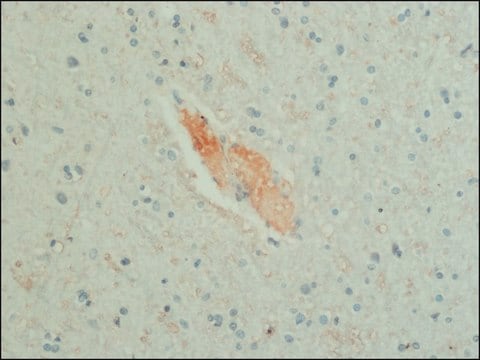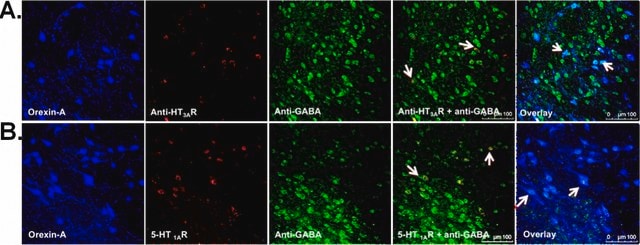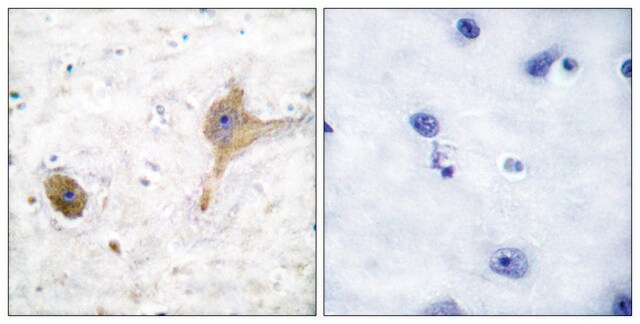A2052
Anti-GABA antibody produced in rabbit
affinity isolated antibody, buffered aqueous solution
Sinónimos:
Anti Gaba, Anti Gaba Antibody, Anti-Gaba, GABA Antibody - Anti-GABA antibody produced in rabbit, Gaba Antibody, Anti-γ-Aminobutyric acid
About This Item
IHC (p)
immunohistochemistry (formalin-fixed, paraffin-embedded sections): 2.5 μg/mL using rat cerebellum
Productos recomendados
biological source
rabbit
Quality Level
conjugate
unconjugated
antibody form
affinity isolated antibody
antibody product type
primary antibodies
clone
polyclonal
form
buffered aqueous solution
species reactivity
rat, Drosophila, wide range
packaging
antibody small pack of 25 μL
technique(s)
dot blot: 1:10,000
immunohistochemistry (formalin-fixed, paraffin-embedded sections): 2.5 μg/mL using rat cerebellum
shipped in
dry ice
storage temp.
−20°C
target post-translational modification
unmodified
Gene Information
rat ... Gabra1(29705)
General description
GABA (γ-aminobutyric acid) is a multifunctional molecule found in several organisms, from prokaryotes to vertebrates. It is present in non-nervous structures, such as peripheral nervous and endocrine systems. GABA is formed following decarboxylation of glutamic acid by the enzyme glutamic acid decarboxylase (GAD).
Immunogen
Application
Biochem/physiol Actions
Physical form
Storage and Stability
Disclaimer
¿No encuentra el producto adecuado?
Pruebe nuestro Herramienta de selección de productos.
Storage Class
10 - Combustible liquids
wgk_germany
nwg
flash_point_f
Not applicable
flash_point_c
Not applicable
Elija entre una de las versiones más recientes:
Certificados de análisis (COA)
¿No ve la versión correcta?
Si necesita una versión concreta, puede buscar un certificado específico por el número de lote.
¿Ya tiene este producto?
Encuentre la documentación para los productos que ha comprado recientemente en la Biblioteca de documentos.
Los clientes también vieron
Nuestro equipo de científicos tiene experiencia en todas las áreas de investigación: Ciencias de la vida, Ciencia de los materiales, Síntesis química, Cromatografía, Analítica y muchas otras.
Póngase en contacto con el Servicio técnico













